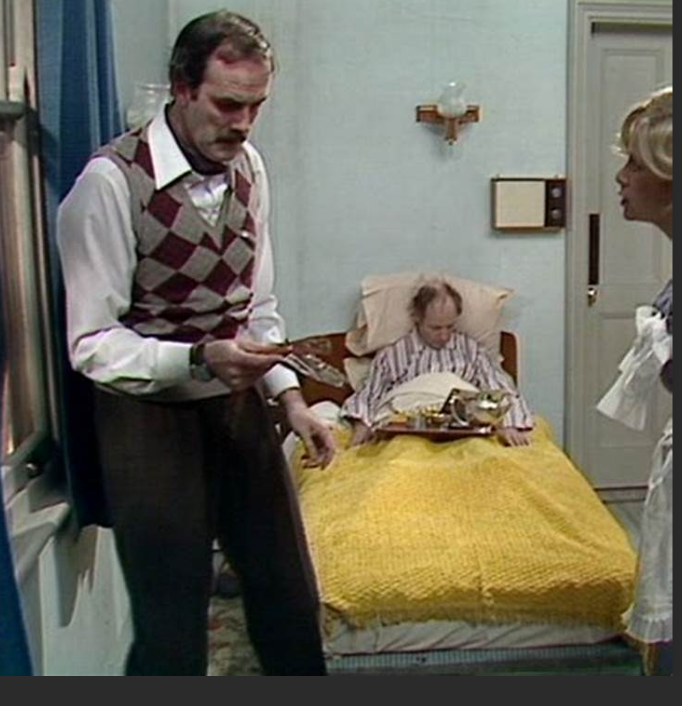I was reminded this week of an episode of “Fawlty Towers” called “The Kipper and the Corpse”, in which Basil Fawlty spends the episode trying to hide from his other guests the fact that a guest has died in his room in the middle of the night.
Why did this come to mind?
Well, I had spent a night, as I often do, at the Premier Inn at Piccadilly Station in Manchester. I had booked my room online and paid in advance. I checked in automatically a the kiosk using a QR Code that had been E mailed to me. I printed my own key. I left before breakfast and dropped my key off as I left. I never saw or interacted with a single member of staff during my one night stay. So, the thought occurred to me, if anything had happened to me while I was checked in, how would anyone have known that I was there? I left no impression on any member of staff.
I know this is slightly dramatic but it highlights an interesting development in the leisure and hospitality industry, and I wanted to discuss its impact on its customers.
I travel frequently and have short one night stays in hotels around the country. I like to use budget hotels, enjoying their comfort and cost effectiveness. I like using Premier Inn, Park Plaza and Holiday Inn Express.
Like much of the domestic business travel hospitality sector, there has been a move to automate as much of the process as possible. This has been done to reduce staff costs, improve efficiency and to focus resources on the value adding part of the business travel transaction.
In many ways, it is convenient for a traveller. It reduces the need for queues at reception and can speed up the check in and check our process considerably. Where the technology that has been invested in works well, it is a remarkably efficient system. At the Park Plaza in Leeds, which I stay in frequently, I can generate my key for my room from the train to Leeds using the App. I can then just walk into the hotel, get into the lift and go straight up to my room. I never see a single other human being.
At Premier Inn, I get a QR Code by E mail and just march up to the machine, flash the QR Code, get my key and go up to my room.
In many ways, it is incredibly efficient and simple. However, it is also incredibly soulless. If I am not dining in the hotel or having breakfast, it feels quite solitary. There is no human staff interaction.
The rooms are always fine. The billing is efficient. The sleep is comfortable. It is a though, a “human free” experience, and in business travel, that has its pros and cons.
I am not sure about you, but I do not enjoy business travel. I hate being away from home and I find it quite lonely. I do not like sleeping in a strange bed, however comfortable and I do miss an element of human interaction.
Has the industry gone too far in automating and removing humans from the process? Is the counter factual to a more efficient automated process a reduction in human contact, and does this have an impact on the wellbeing of travellers? I would be interested to know if there is research on this.




